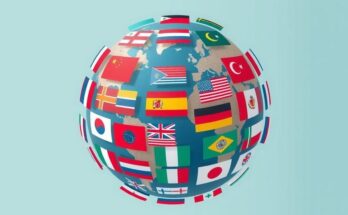A recent survey indicates a surprising optimism among Syrians regarding the future, with 70% expressing hope and 80% feeling freer post-Assad. Interim President Ahmed al-Sharaa has initiated a cabinet but faces challenges in reviving the economy due to persistent Western sanctions. A conditional lifting of these sanctions could support reconstruction efforts, allowing Syria to reconnect with the global economy.
In recent months, public sentiment in Syria has taken an unexpectedly optimistic turn, despite the dire economic and political situation. Following the ousting of Bashar al-Assad, a survey conducted by The Economist reveals that an impressive 70% of Syrians express hope for their country’s future, with 80% feeling an increased sense of freedom. This positive outlook presents an opportunity for both interim President Ahmed al-Sharaa and Western nations looking to assist in Syria’s recovery.
Nevertheless, the data must be interpreted with caution due to Syria’s traumatic history and limited experience with free expression. Despite existing divisions, particularly between the Sunni majority and the Alawite minority, there is a significant trust in Mr. Sharaa for leading the country’s reconstruction efforts. He has begun to fulfill expectations by formulating an interim cabinet, which includes diverse representatives and a woman, although vigilance regarding centralized power remains necessary.
The primary challenge facing the interim government is the revitalization of Syria’s devastated economy. The survey indicates urgency, as 58% of participants believe the economic situation has worsened since Mr. Sharaa’s takeover. The absence of regular pay for civil servants and scarce cash flow are additional issues complicating recovery efforts.
One major hindrance is the ongoing Western sanctions targeting Syria. Initially designed to isolate Mr. Assad, these sanctions now restrain the new government’s ability to rebuild by prohibiting foreign investments and limiting access to the global banking system. Consequently, Syria struggles to secure payments for exports and relies on sanctioned Russian oil supplies.
While there are concerns regarding Mr. Sharaa’s past affiliations, failure to act could enable extremism and violence to resurface. The West must recognize that a stagnant economy poses risks that may outweigh apprehensions about financial assistance. Implementing a conditional lifting of sanctions could provide the necessary support while retaining leverage over Mr. Sharaa’s governance. Accordingly, facilitating Syria’s access to resources would afford its citizens a substantial opportunity to reconstruct their lives and future.
In conclusion, the prevailing sentiment among Syrians highlights an optimistic yet fragile hope for the future amid overwhelming adversity. With a supportive interim leadership under Ahmed al-Sharaa, the lifting of Western sanctions stands as a critical factor for economic recovery and societal reconstruction. Prompt actions to facilitate rebuilding while maintaining oversight could ultimately steer Syria away from potential chaos and conflict, allowing its citizens a chance for healing and prosperity.
Original Source: www.hindustantimes.com




